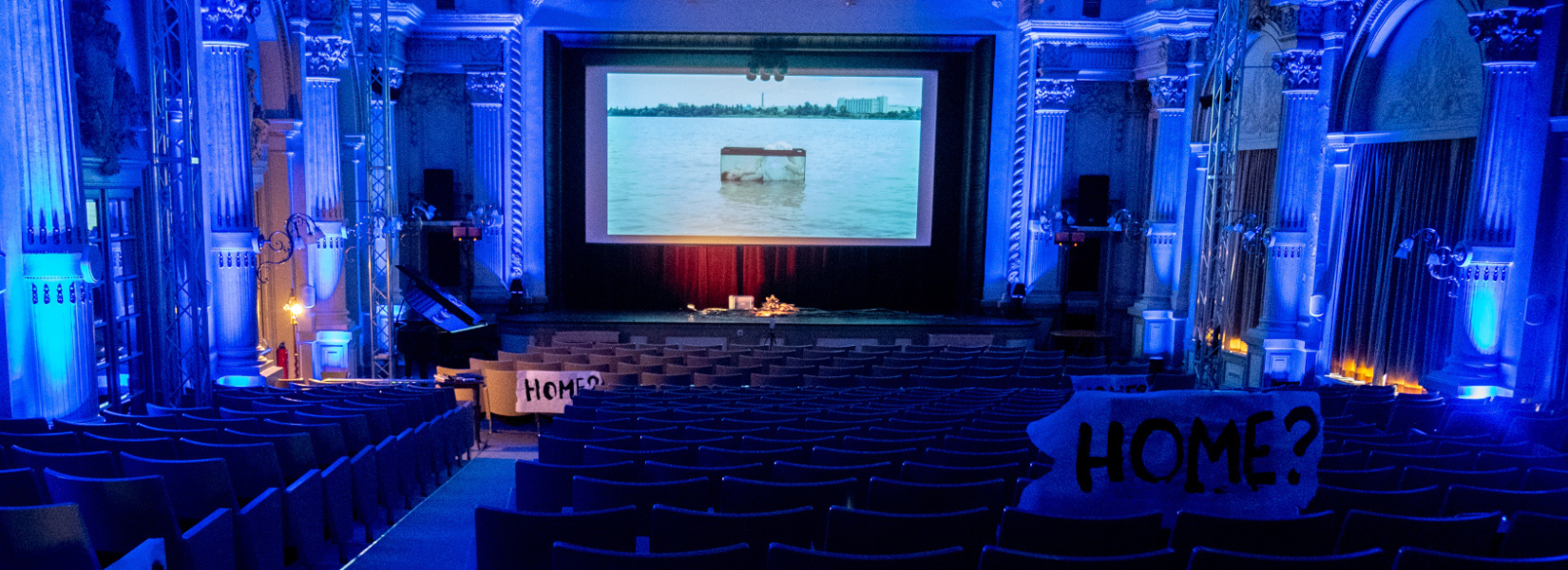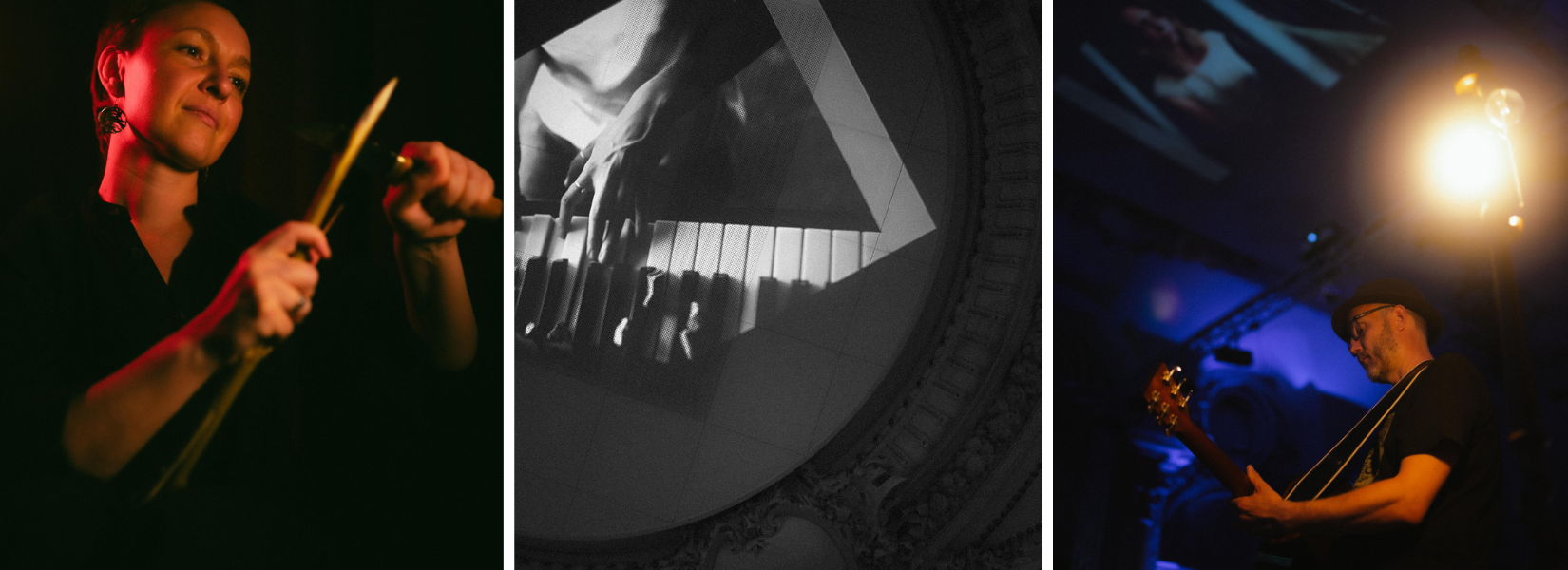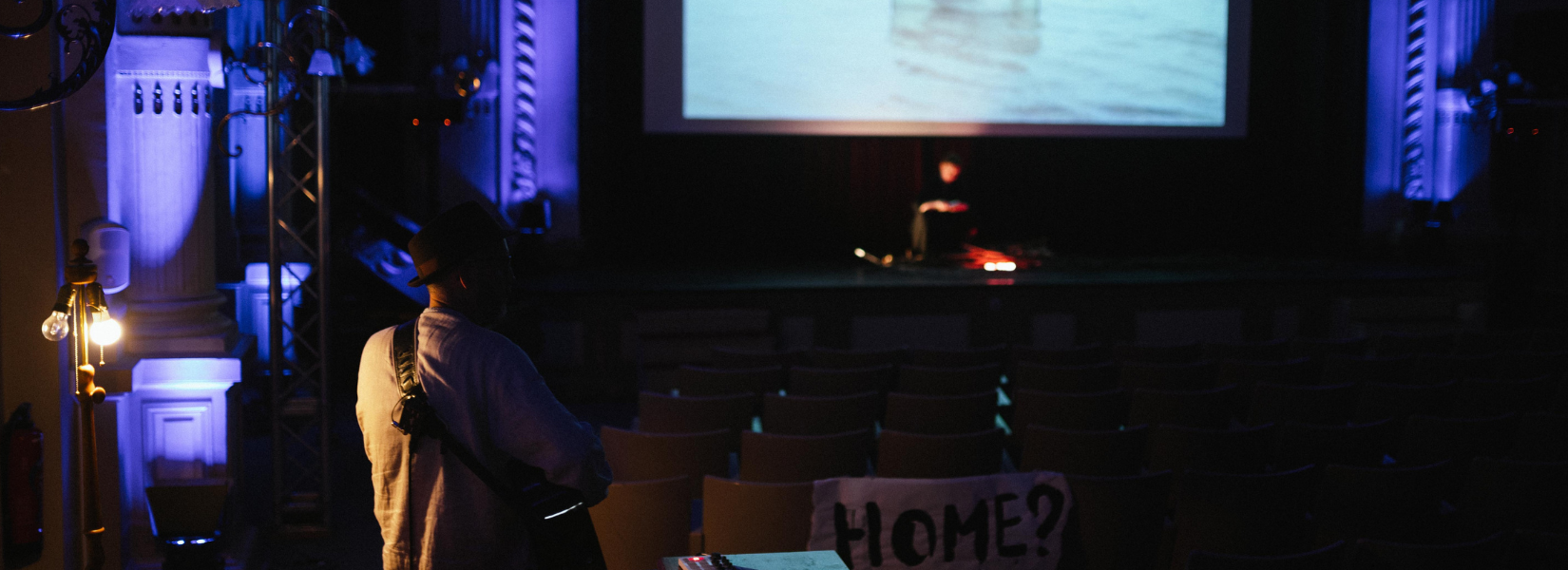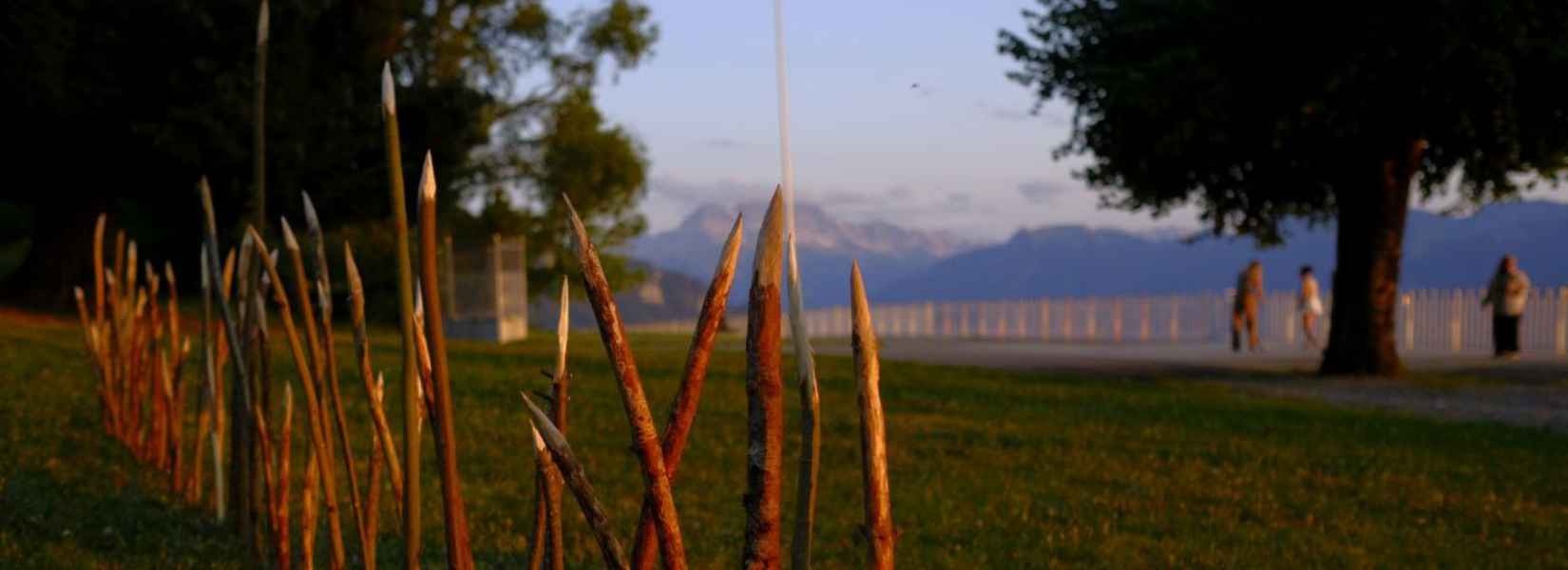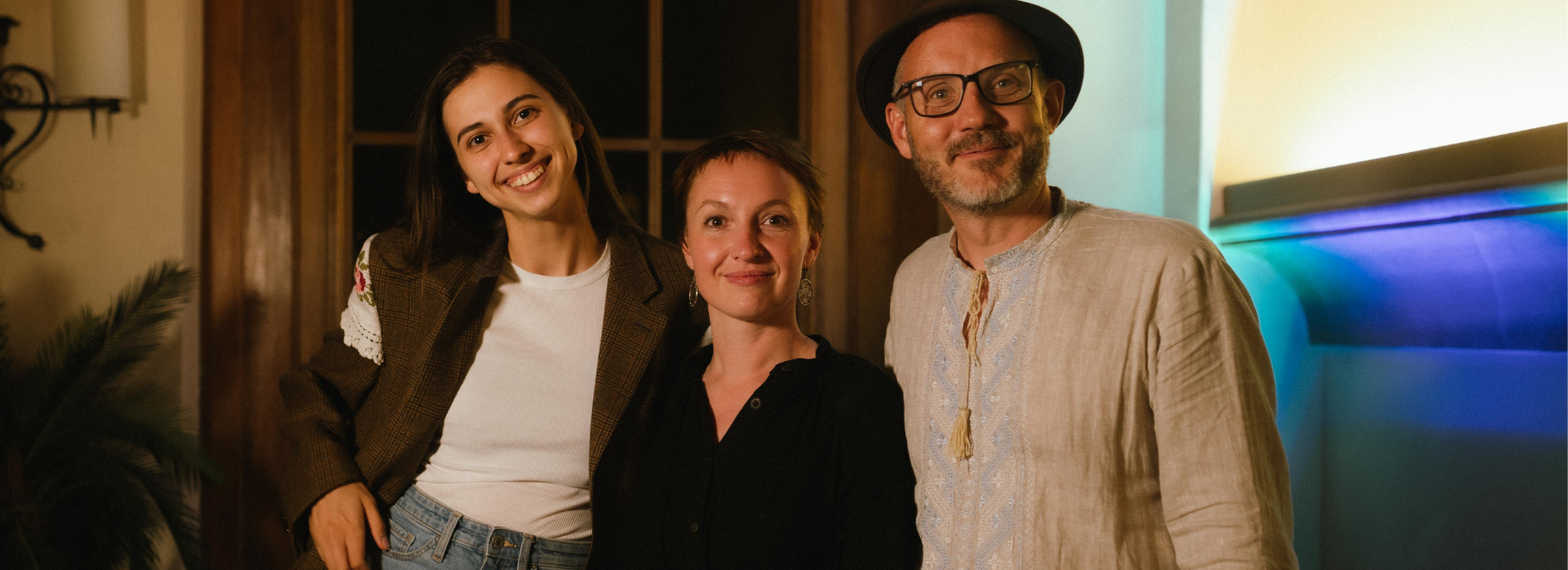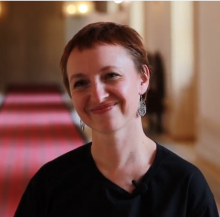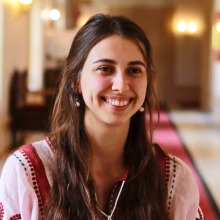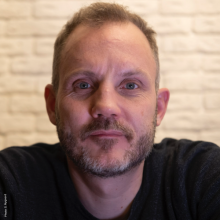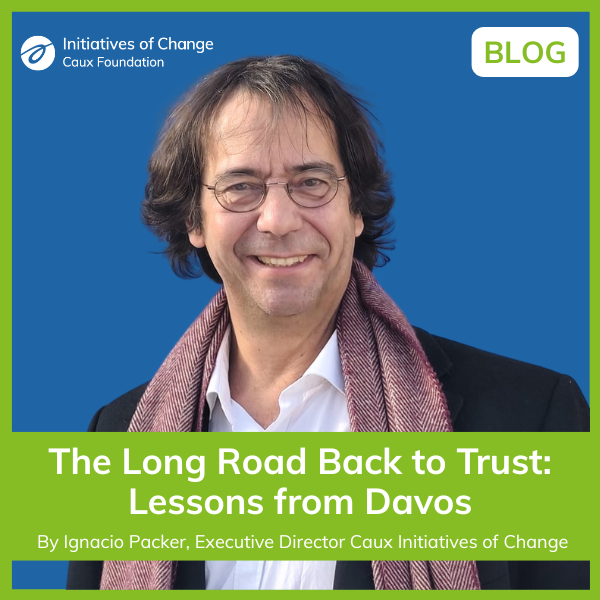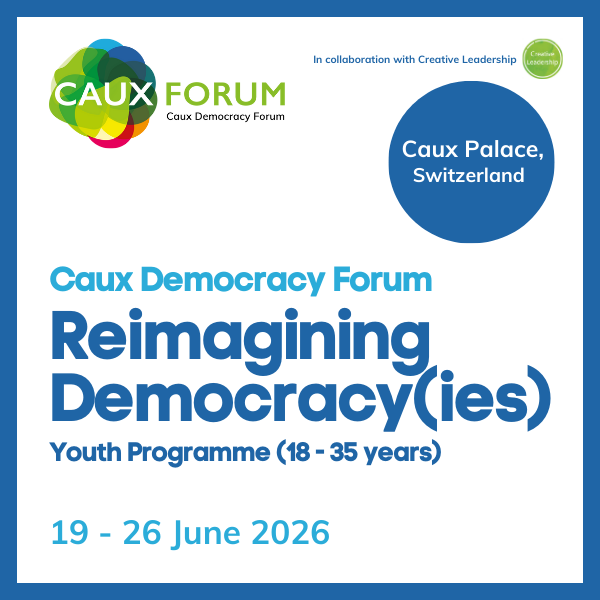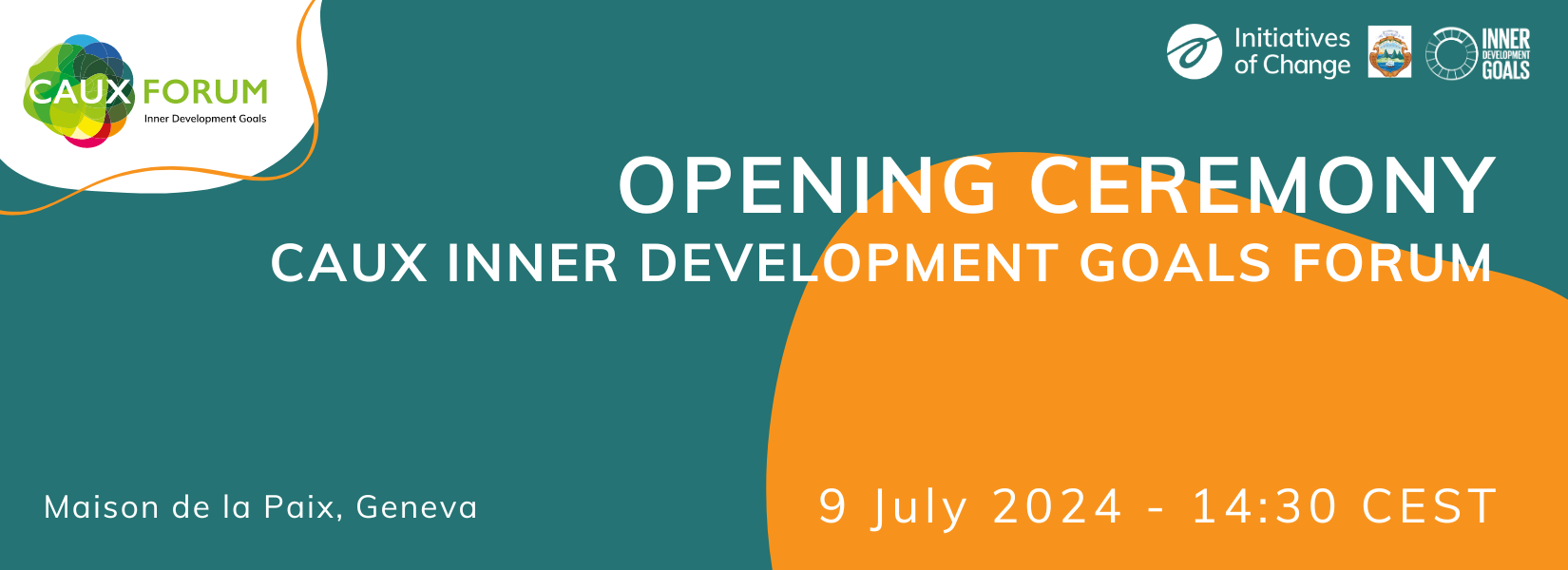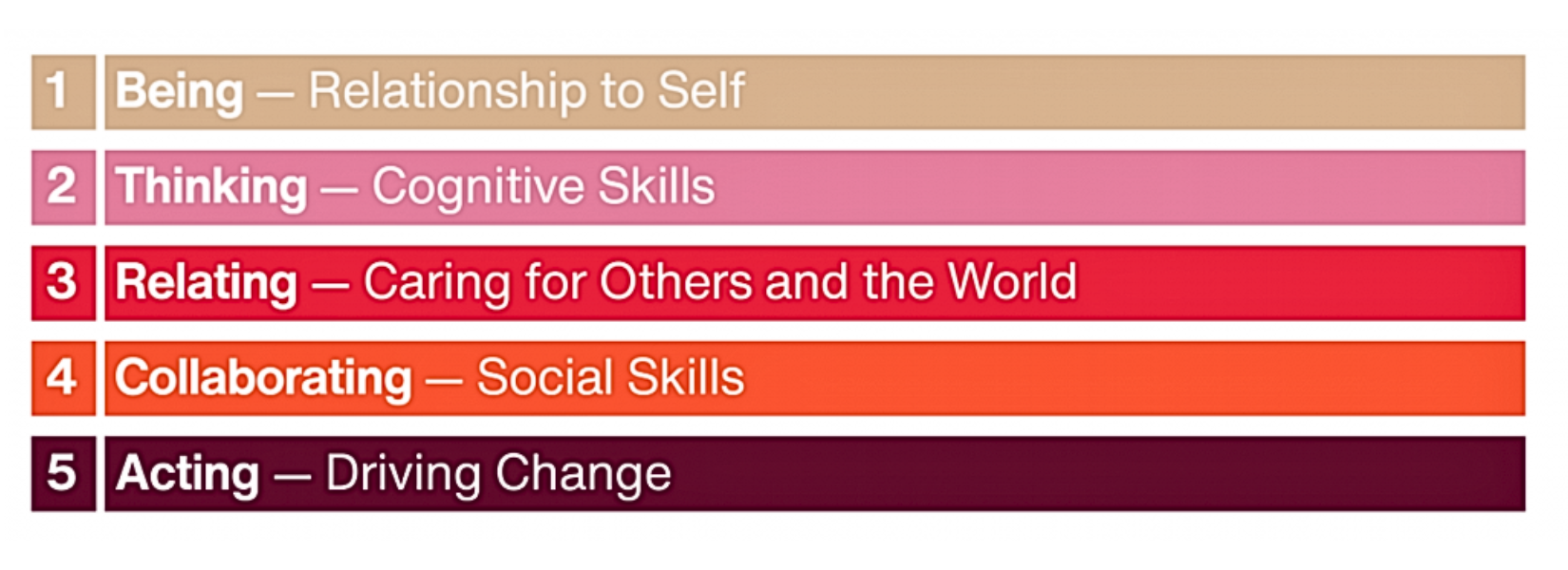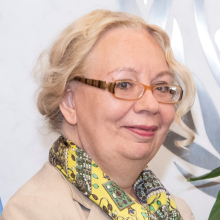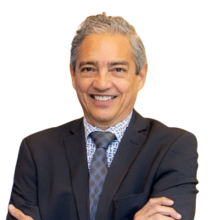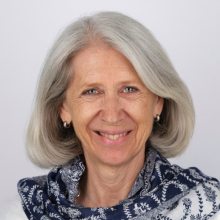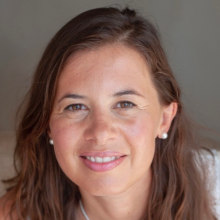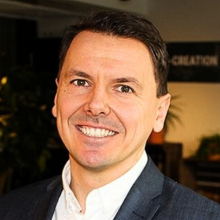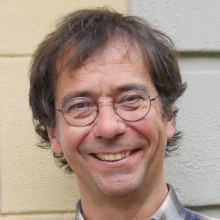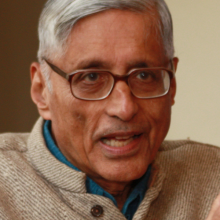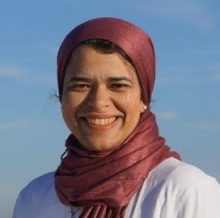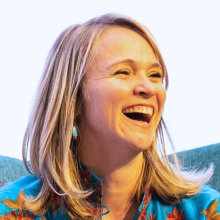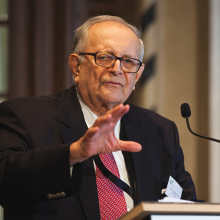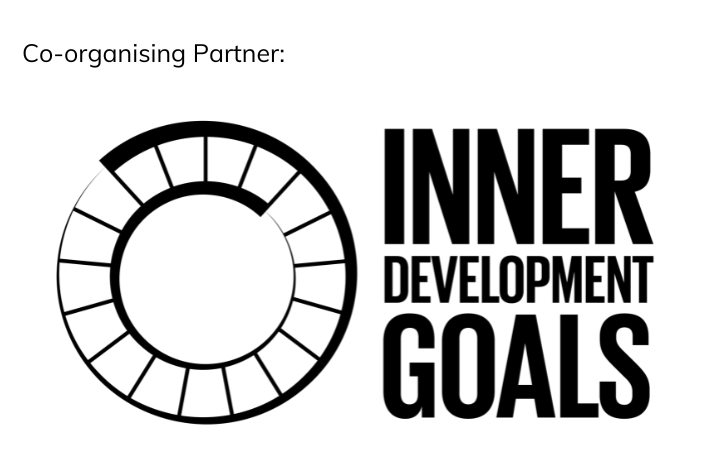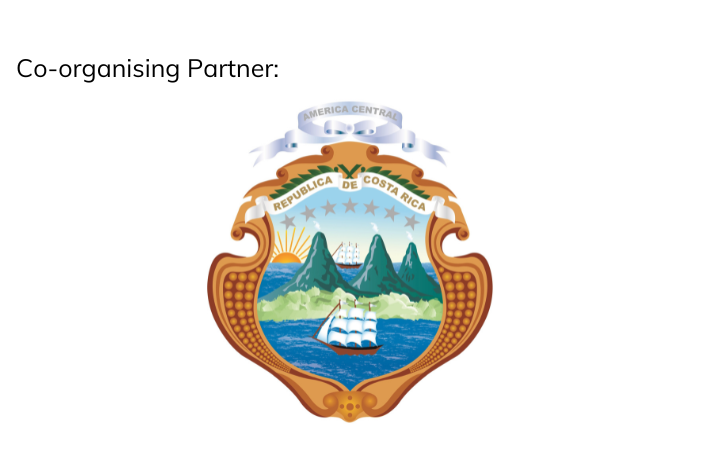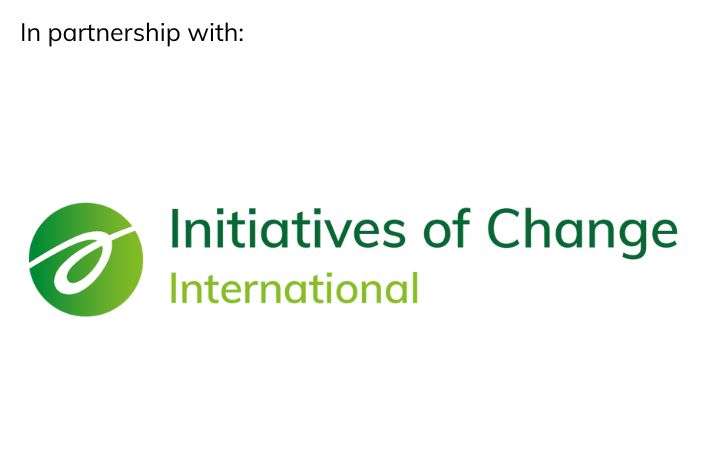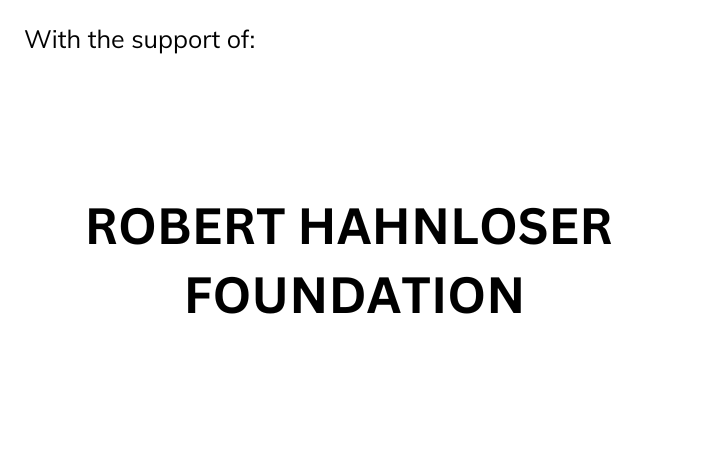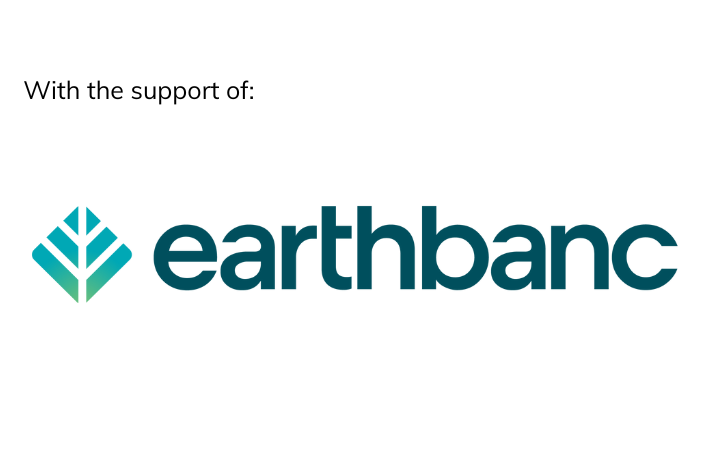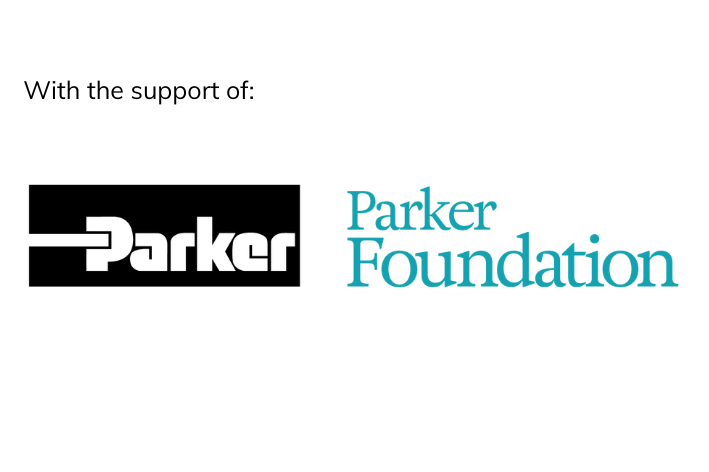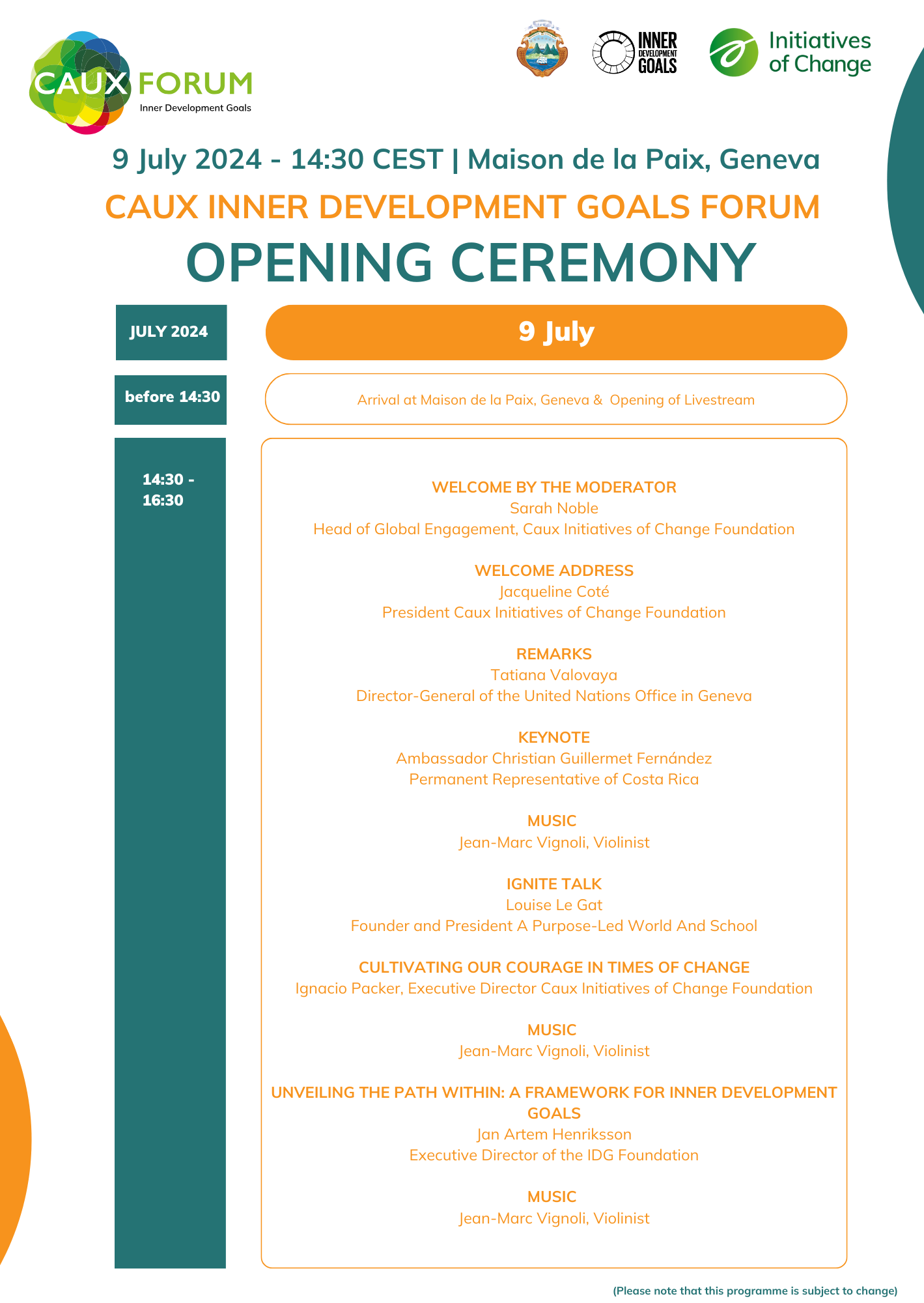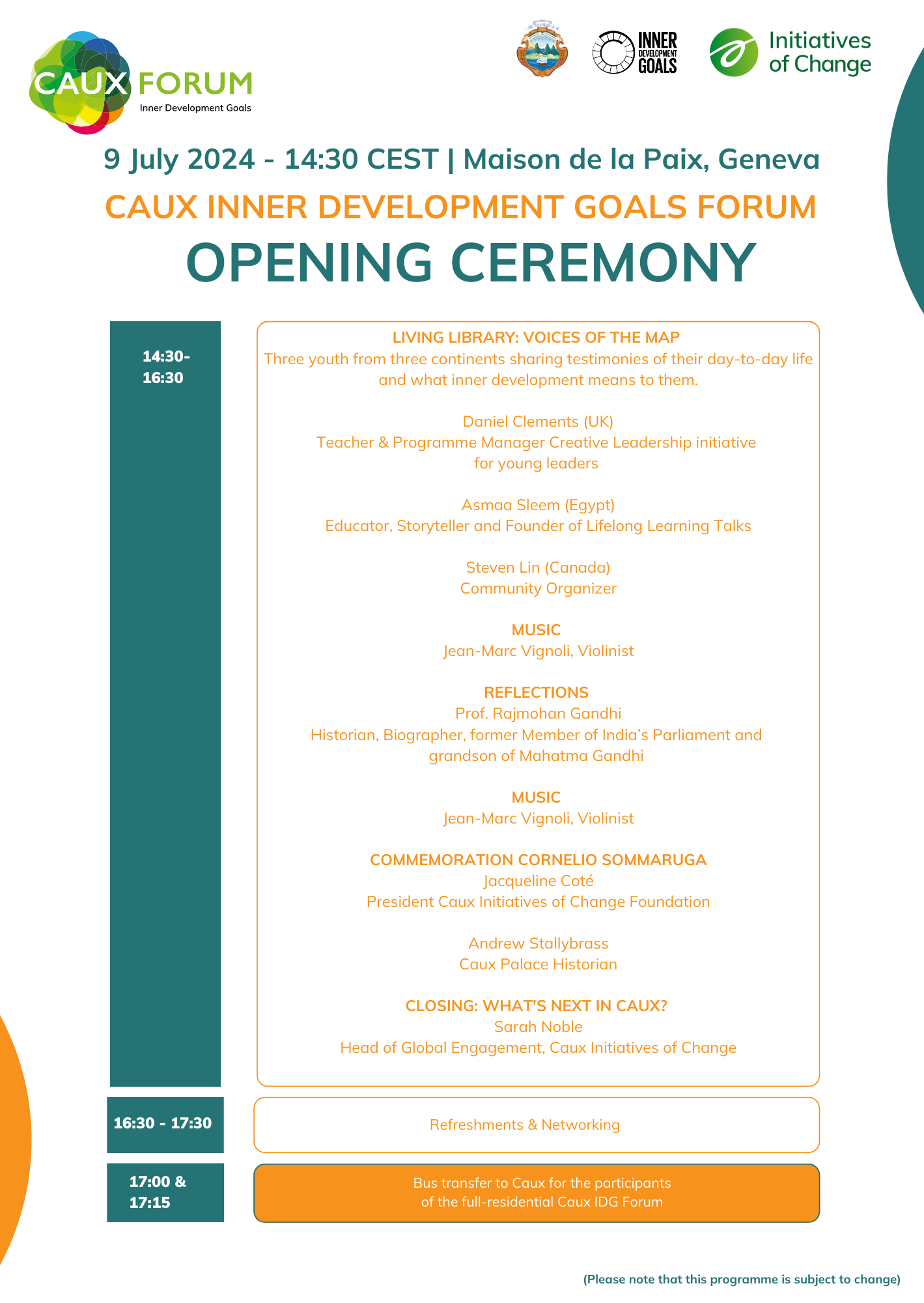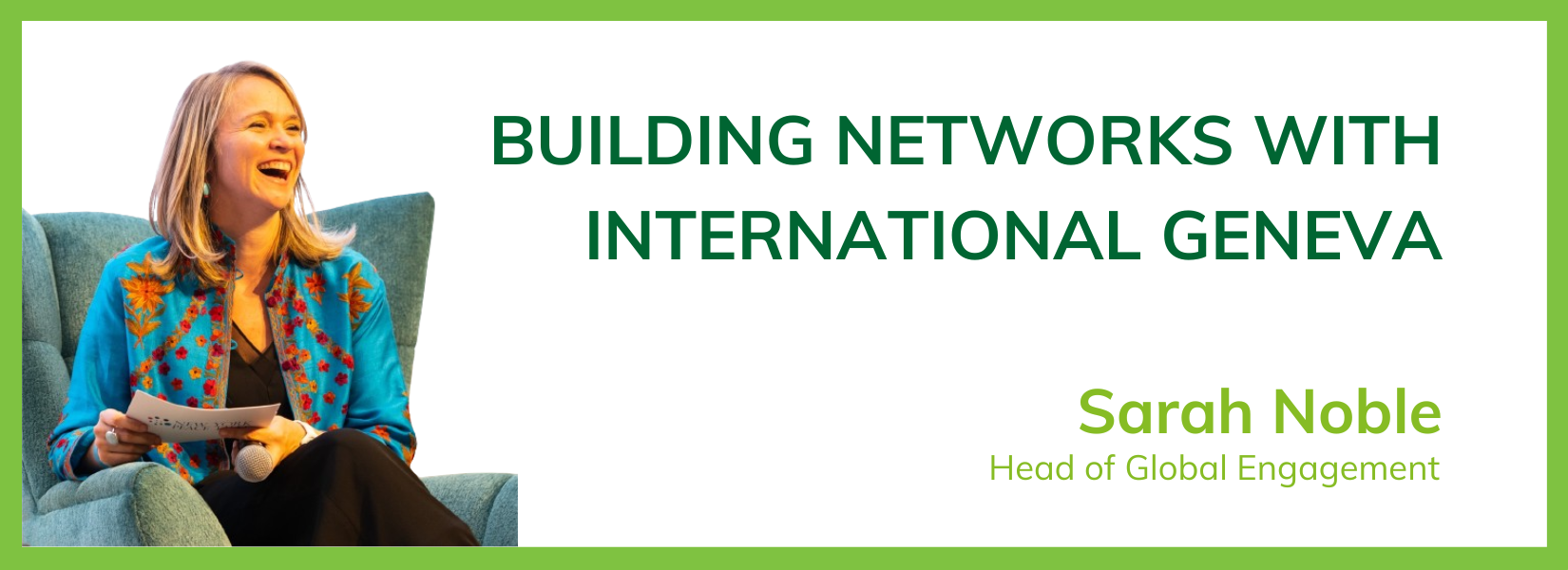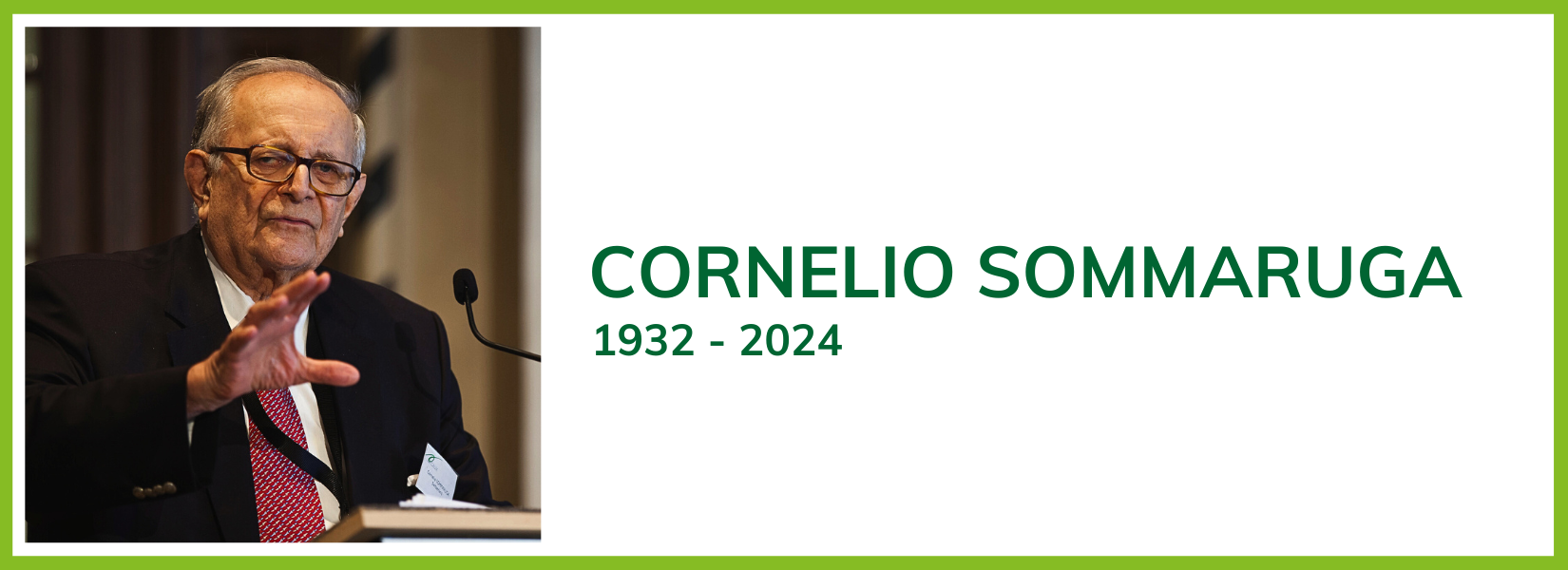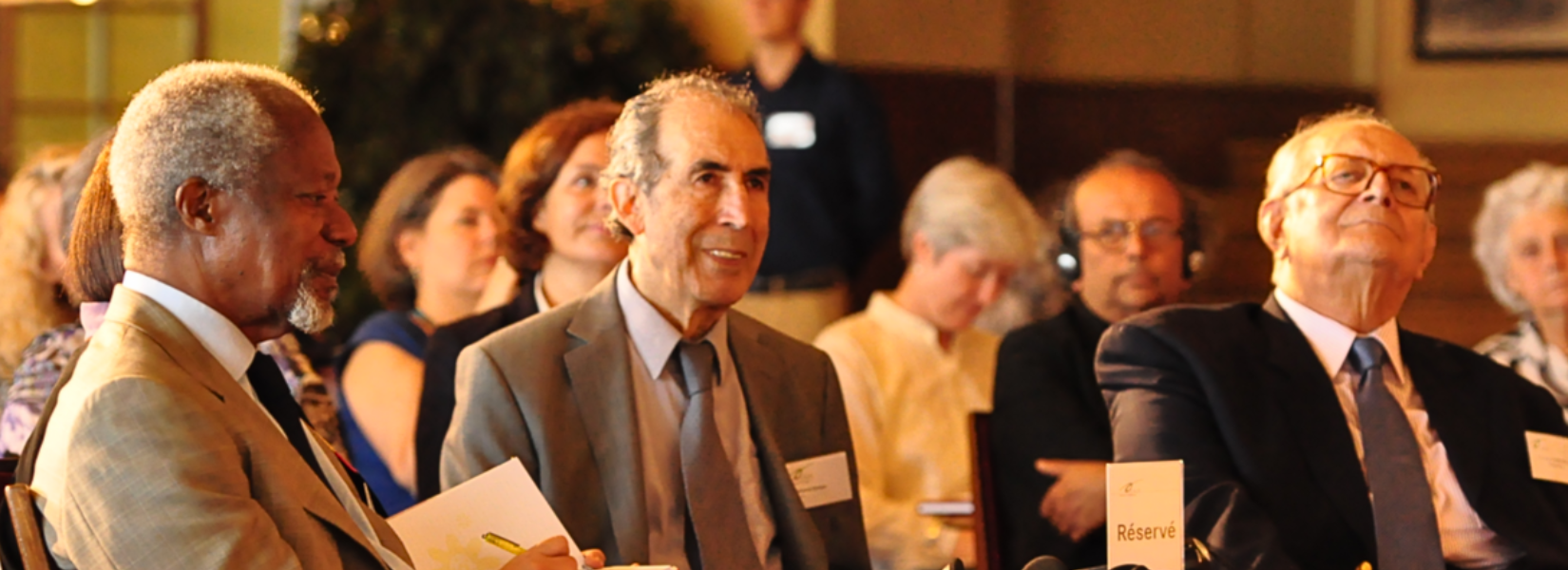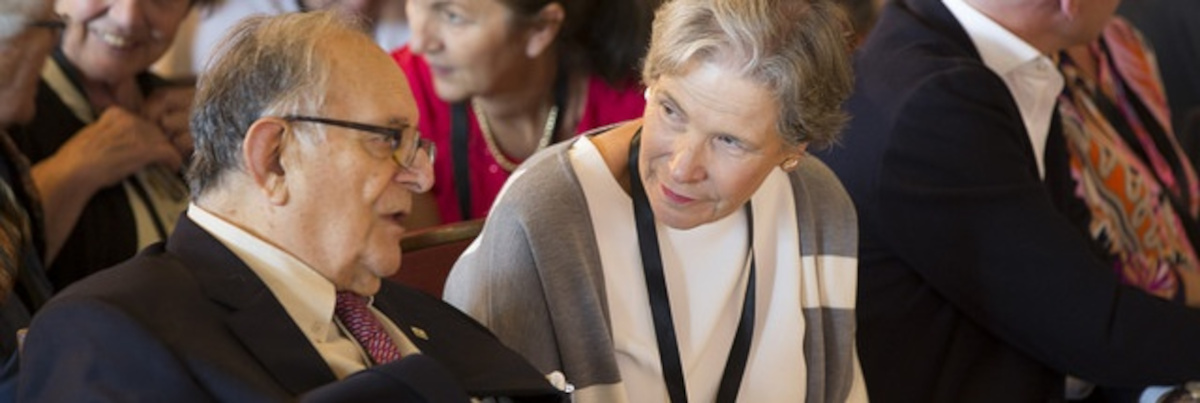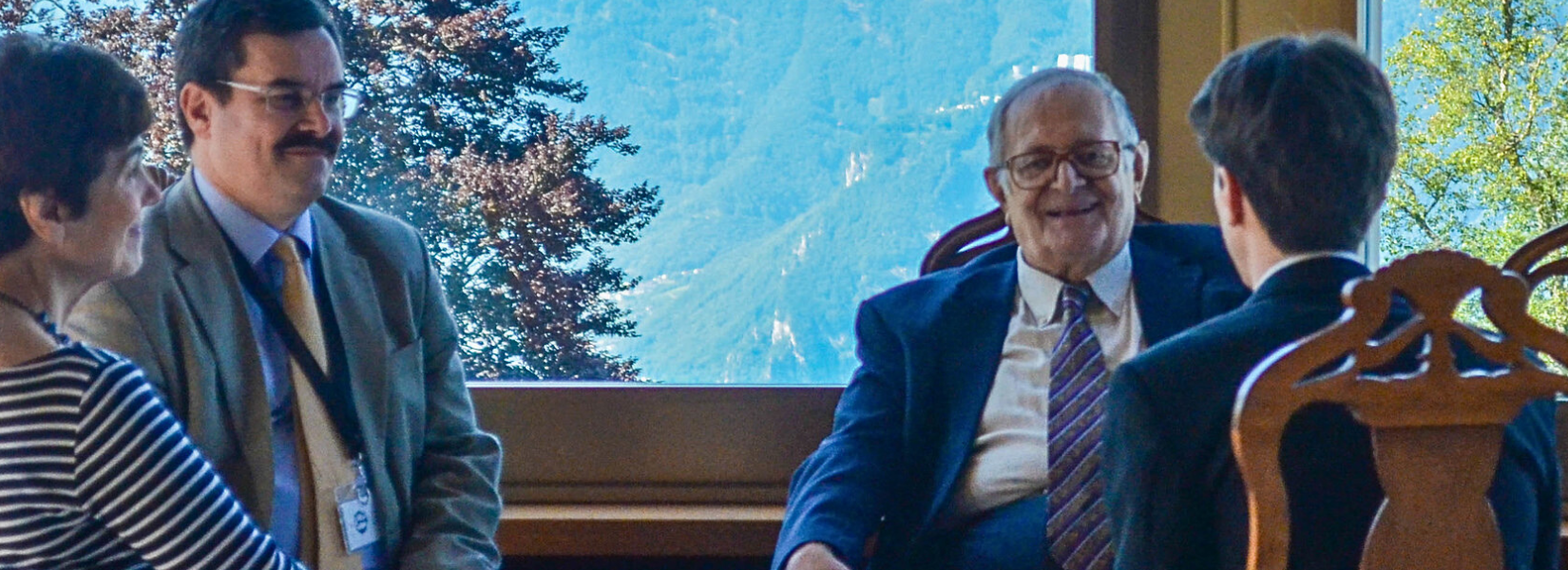What is the meaning of home?
15/03/2024
Amid escalating conflicts worldwide, the arts emerge as a potent force to challenge misconceptions and foster positive perspectives. The pivotal role of artists in creatively raising awareness has never been more important. Last summer, at the Caux Forum, three remarkable artists offered profound reflections on diverse realities.
A dark theatre with dimmed light in blue and purple, just enough to see where you are going without stumbling. In a corner, an accoustic guitar, playing music - etheric, haunting and beautiful. A range of photos projected on the ceiling. And a woman, sitting alone on the stage in front of a camp fire, carving wooden sticks into stakes to protect her home, while behind her, a video projection shows her lying in a glass container in the cold water of a river.
Talking feels out of place, even whispering is conceived as a disturbance. Listening, watching, writing seem the best way to absorb what is going on. The music never stops and neither does the woman on stage, carving the wooden stakes at the fire in the middle of a war, far from home.
Between the rows of empty seats there are signs, maze-like, with stark words in bold: “Shelter” or “Home?” and visitors are discreetly urged to ponder their definition of home before departing.
This evocative visual arts installation, brought to the Caux Palace during the Caux Forum 2023 by Ukrainian artists Polina Kuznietsova and Kateryna (Katya) Tretiakova, alongside Norwegian musician Sveinung Nygaard, offers a poignant testament to the power of art in fostering empathy and understanding amidst turmoil.
Polina and Katya, tell us about yourself!
Polina: I am Polina Kuznietsova, I am an artist from Kharkiv, Ukraine and I do exhibitions. Most of the time I do paintings but I am also interested in analytical psychology.
Katya: My name is Kateryna - or Katya - Tretiakova and I also live in Ukraine. I am a photographer and I am also a psychologist.
Are you both full-time artists or is art a hobby for you?
Polina: There were tense situations in my life when I was wondering whether to become a full-time artist or not and every time I felt it like a crisis. But how can I not be an artist when I am an artist?
Katya: For me it is a bit different. I started studying psychology, but photography has always been my hobby. At some time it turned into my profession. But when I finish with my studies, I am thinking of combining both and bring a more therapeutic sense of psychology into photography. It is something I originally never believed it might be possible. But there is a branch in psychology which is called photo-therapy. It means dealing with and talking about feelings through images, through photography. It can be very helpful, especially for people who find it hard to express what they feel through words.There are different techniques, like choosing and talking about a picture that shows what I feel or picking a picture that I feel is important to me and talk about that. I love talking about this! (laughs).
Do you feel that combining those two fields is going to be important for your country and the people there?
Katya: When the war started I was wondering what I could I do for my country. At the beginning I was thinking that maybe I should go to the front line, but frankly speaking I am not a great warrior. But photography and psychology can help others, so I hope that I can be helpful through what I love doing.
The art project you brought to Caux is called “Home?”. Why is there a question mark at the end?
Polina: The topic of home worries me much because at my home right now not everything is good and this is something I am constantly thinking about. When I travel I always think about what I can do for myself in order to feel at home. Not long ago I went to my original home where I come from. But I didn’t really feel at home anymore. Something was missing. There was a lack of something. I guess it was security.
Where is home for you?
Polina: That is a good question. My home is Ukraine. My home is Kharkiv. This is where my family and friends are. But now it’s so hard to go there and have all this.
At the arts installation there is a also video where we can see you in a glass container in the water. What made you think of this idea - of being in the water but nevertheless visible?
Polina: I actually wrote a long article about this. I was mainly thinking of the attack to a power station in Ukraine and I was thinking of different meanings. The glass container could represent part of a Museum of Anatomy and I was in there, like an object or like an expression, trying to imagine what it could be like to be in cold water. It was very cold and I stayed for 85 minutes in all. I hadn't really thought before how long I would stay in the water. Originally I wanted to do this performance at a different place but then I chose this one because I really liked it.
Katya, tell me about your role in the arts project.
Katya: There was this project I did with a friend back home. She is a photographer and artist and she has been to different places and she was also visiting military. She has been at the front line and I thought it would be interesting to talk about this and express through her story what other people might go through. In the "HOME?" arts installation we projected some of my photos onto the ceiling and I read out aloud our personal views about home to the audience.
While you are in the theatre as a spectator, you ask them to write down what you feel.
Katya: Yes, I ask some people who come in: "What is home for you? Can you please share and also your feelings when you think about this." Some of them shared, but others decided to keep their emotions to themselves.
There is a contradiction when you are in the room – the light and the music made you feel like a cocoon, it felt...nice. On the other hand, the topic is definitely not "nice". Was the way you prepared the setting deliberate?
Katya: Probably it’s what you felt personally. I am actually happy that you experienced it as nice to be there, even though the topic was so difficult. Some people who came just felt bad in general. But everyone has a right to their own feelings.
Do you think there are limits of what art can do, for example in a situation like back at your home in Ukraine?
Katya: My answer is short: Art has no limits!
What encourages you most as an artist? What makes you tick?
Polina: For me, art is a type of reflection of what is happening inside and outside of me.
What is currently on the horizon for you as an artist?
Katya: I hope that I can use photography and my knowledge in psychology in order to help people to build up the confidence they lost through traumatic events in their lives and I would like to support people with PTSD (post-traumatic stress disorder) to come back to life.
Do you think your arts installation has its place here in Caux, that it is important to be here? What is your hope for this installation at the Caux Palace?
Polina: After the attacks when something really terrible happened I realized that the world wasn’t paying much attention to it. When I came here with this performance I was hoping to share about this and I hope that in Caux there are people who will see and notice it. Another reason for bringing the project here was also because it is a way to express what I feel.
Katya: I feel it definitely plays a huge role here, especially for people who don’t know much about what is happening. We didn't only do several performances during the Caux Forum but we wanted to go even further in making people think. So after Polina had finished carving the wooden sticks into pointed stakes, we went into the Caux Palace gardens and stuck them into the ground, like a fence, as a symbolic protection for Caux.
This is your first time at the Caux Palace. How does it feel to be in this environment with so many people from all over the world?
Katya: It’s very exciting, I must confess. I have met and talked to people from countries I have never been to and which whom I have never managed to talk to before. It’s very interesting for me to hear opinions I might not always share, but just to see and hear the difference.
_______________________________________________________________________________________________________
About the artists
Polina Kuznietsova was born in 1985 in Kharkiv, Ukraine. She graduated from the Kharkiv Art Academy of Design and Arts at tje Faculty of Fine Arts, specializing in easel painting. She has has been engaged in fine arts since 2008, has taken part in international exhibitions and her paintings are part of private collections in Ukraine, the US, Estonia, China, and the Philippines. Her art has been described as "magical realism." and her paintings often show the space of dreams rather than time and reality. Polina prefers to combine volume with decorative elements rather than perspective. In her texts and paintings, she reflects on external events and internal personal processes and since February 2022, she has been focusing all her creativity and thoughts on raising awareness to the events in her country. As it is not easy for her in current circumstances to dedicate a lot of time expressing herself with painting techniques, Polina has also been engaged in media art and performance where she appreciates the technique of quick and immediate reaction to events.
Kateryna (Katya) Tretiakova was born in Kremenchuk, Ukraine. She is a photographer and currently studying for a degree in psychology. Her favourite genres in photography are portraits and body image. For her, the camera is a tool which helps her freeze a moment in order "to catch a little thought in a person's eyes". Katya is passionate about combining her two activities in order to be able to help others overcome trauma and difficult times in their lives: "They may seem like very different fields, but in my mind, they are very close. (...) Both, conversation and photography, may heal if the listener/viewer is attentive, tolerant and open-hearted."
Sveinung Nygaard is from Norway and works as a professional composer, with MA in Audio Production from University of Westminster. He has composed music for world handball championship in Qatar, the TV series Freej in Dubai and has his own musical project called FLYT which explores how music can unite a mosaic of cultures. Sveinung believes in telling stories with music and connecting people. Sveinung gave several performances last year during the Caux Forum 2023, including the Opening Ceremony and the arts installation "HOME?".
_________________________________________________________________________________________________
At Initiatives of Change, the arts have always played an important role in connecting people and in creating bridges across our world's divides. Our concept of Hospitality for Change is not only about providing the best possible welcome and service at the Caux Palace, but also about recognising the power of artistic expression to promote understanding, trust, peacebuilding and positive social change. We are therefore delighted that the Caux Palace theatre continues to serve this purpose and look forward to offering more inspiring events.
Interview & video by Ulrike Ott Chanu

